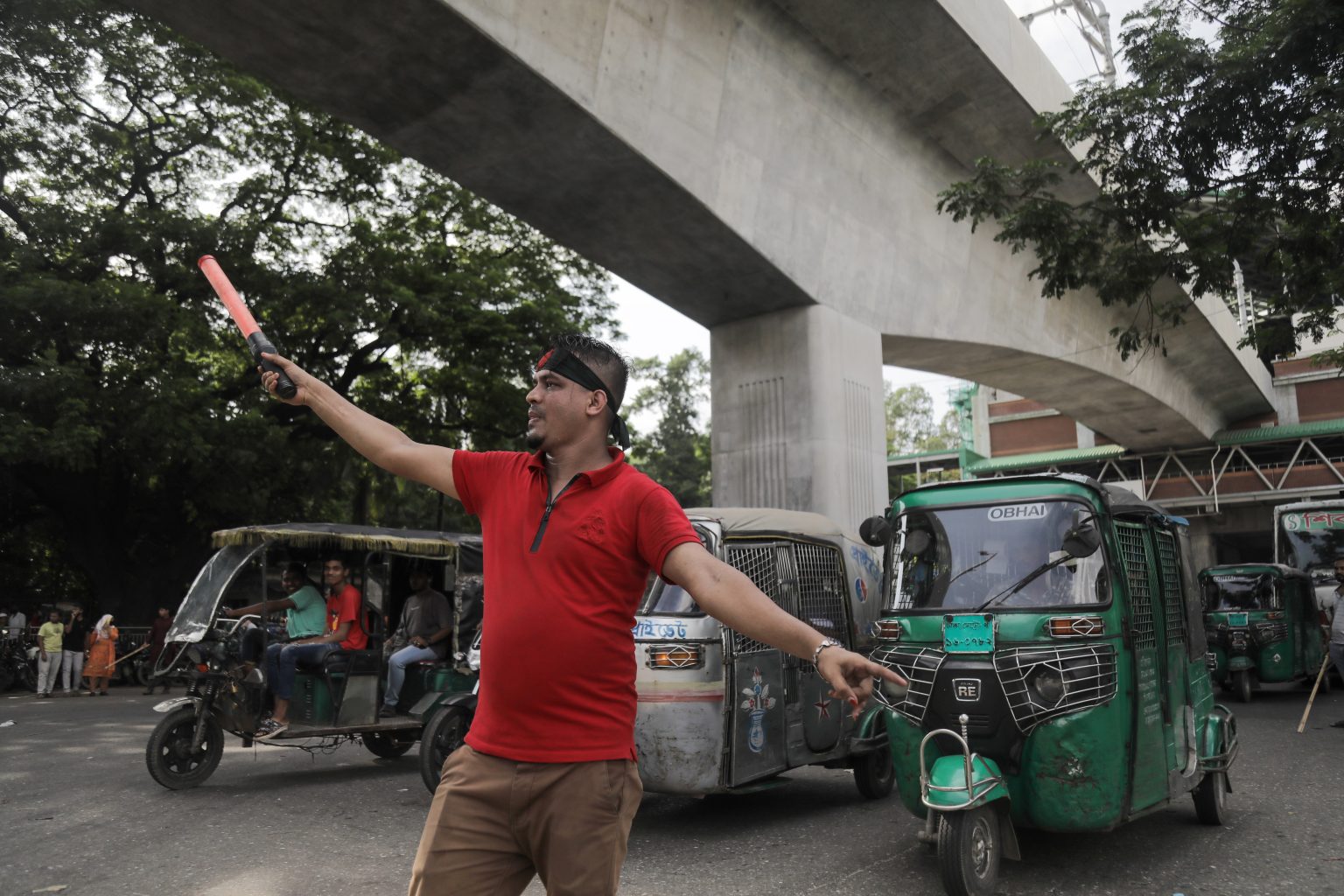Let us, for once, talk about the tiny hurricane lantern that lit up after the storm that was the July Revolution in 2024. When Sheikh Hasina and her Awami League entourage vacated the nation and left the country with a gaping power vacuum, the police had also decided to go on a vacation, leaving the roads unsupervised.
Having just come off the victory high of the massive takedown of an authoritarian regime- after a month of protests and brutal clashes-the citizens finally realised the extent of the damage done upon guiding lines through the country.
Naturally, students had to step in once again.
We have seen it before in 2018—when the students showed off to the police that they were better in managing unruly vehicles after the death of two university students wrecked the country sparking the Road Safety Protests. This time, with the world’s eyes on Bangladesh, international news medias picked up on this curious development.
“I’m here because there are no traffic police around and the roads have become chaotic,” Ahnaf Matin, a private university student, said to the Anadolu Agency.
He was on duty at Mirpur Road. “My friends and I looked up some YouTube videos on traffic management. It’s not that difficult.”
The students garnered praise from regular commuters who reported their daily route became less hectic with them in charge. “They’re handling it like professionals,” said Mahin Ahmed, an NGO worker. “This intersection in Moghbazar used to be congested when the traffic police were in charge, but things are much smoother here with these students managing it,” he added.
The students cleaned up the roads, maintained lane discipline (anyone who has lived in Dhaka will know this is impossible as the highways resemble Mario Kart more often than not), and beautified the walls with their thoughtful, colourful graffiti.
The Dhanmondi Lake attracted a large flock of people—not enjoying a day off but rather cleaning up their cherished place. A group of students from Government Mohammadpur Model School and College said they were inspired by the sacrifice of a friend during the movement to help the community, his untimely death driving them to envision a better Bangladesh.
Mothers brought their children to volunteer in the clean-up programmes as a way of building a sense of responsibility to the country. University students formed Facebook groups to invite their friends to bring their decluttering skills to the streets.
However, regular civilians’ contributions did not end there; with hardly any law enforcement in sight, students took up batons and sticks to guard their neighbourhoods. Seeing their children work so hard, parents and guardians would often join in and host late-night cookouts under clear skies, uncles reminiscing about the bygone days of the 90’s with a cup of midnight cha and teenagers getting their first taste of communal living.
After videos of these joyful patrols, which have brought a sense of calm to the hearts of people after a harsh summer, were shared with captions like, “Bangladesh is not for beginners; here, nighttime patrols have become a festive celebration.”
Though Bangladesh may not be for beginners (Dhaka usually reminds one of Gotham), the harmony was heartening to witness. It may have been short-lived, but these fleeting moments of peace showed the great potential hiding underneath every Bangladeshi.
Like the Caped Crusader once said, “Our scars can destroy us, even after the physical wounds have healed. But if we survive them, they can transform us.”


